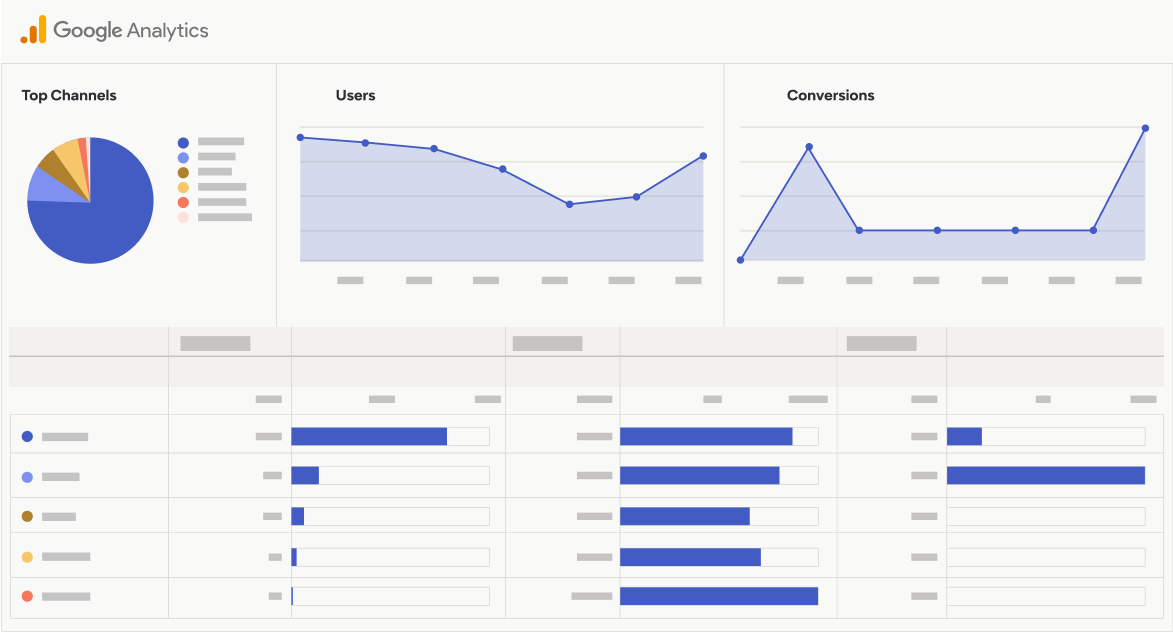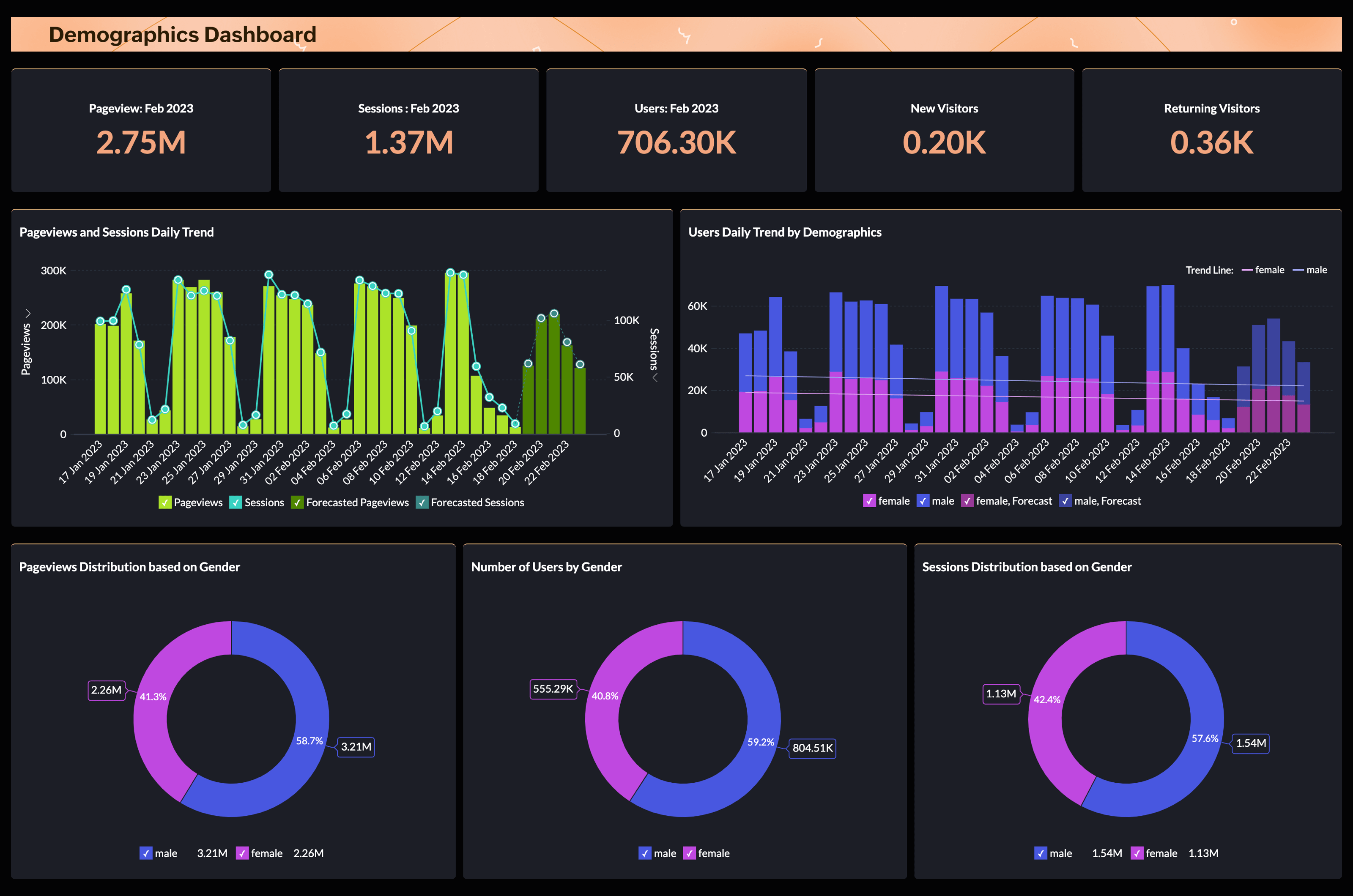Master Site Insights With Accurate Google Analytics Tracking Code
The effective use of Google Analytics pivots on the exact application of its tracking code, a fundamental action typically forgotten by internet site owners. What are the usual risks that could undermine your monitoring efforts, and exactly how can you guarantee precision in your method?
Recognizing Google Analytics Fundamentals
Google Analytics is a vital device for web site proprietors and marketing experts, offering important insights right into individual actions and website performance. At its core, Google Analytics gathers data regarding site visitors to a website, permitting customers to analyze metrics such as web traffic resources, individual engagement, and conversion rates. Recognizing these basics is vital for optimizing an internet site's performance and enhancing individual experience.
The system employs cookies to track interactions, videotaping data such as page views, session periods, and bounce prices. This information is aggregated and provided via customizable dashboards, allowing customers to visualize patterns with time. Key efficiency indicators (KPIs) can be monitored, such as the overall number of customers, new versus returning visitors, and the geographic distribution of the audience.
Moreover, Google Analytics offers segmentation features, enabling individuals to separate certain website traffic resources or customer demographics for more targeted evaluation. By understanding these foundational aspects, internet site proprietors can make informed choices concerning material method, advertising and marketing projects, and total site renovations. Eventually, comprehending Google Analytics fundamentals is necessary for leveraging data to drive growth and attain business goals properly.
Establishing Up Your Tracking Code

Copy the provided tracking code and paste it into the HTML of your website. Preferably, this code needs to be positioned in the header area of every web page you desire to track. This makes certain that the monitoring code loads before any other web content, allowing it to record information properly. There are plugins available that streamline the assimilation procedure. if you are utilizing a content monitoring system (CMS) like WordPress.
After installment, confirm that the tracking code is operating properly by utilizing Google Tag Aide or the Real-Time reports in Google Analytics - when does the google analytics tracking code send an event hit to analytics?. This action is important to verify that your information collection is accurate and energetic, setting the structure for insightful evaluation
Common Monitoring Code Issues
This might occur when the monitoring code is placed in the wrong section of the website's HTML, frequently leading to insufficient or absent data. Furthermore, having numerous circumstances of the tracking code on a single page can result in inflated metrics, as individual communications could be counted extra than once.
Another problem develops from using advertisement blockers, which can avoid the monitoring code from implementing altogether, hence skewing data. when does the google analytics tracking code send an event hit to analytics?. Additionally, failing to set up filters properly can bring about the exemption of important web traffic sources or the addition of unwanted referral spam, distorting the data collected
Website proprietors might additionally forget the importance of monitoring code updates, specifically when moving to Google Analytics 4 (GA4) from Universal Analytics. Finally, inadequate testing before launching changes can cause unseen mistakes in the monitoring code, better making complex information reliability. Attending to these common concerns is essential for guaranteeing accurate tracking and informative analytics.
Analyzing Site Information Successfully
Exact information collection is just the very have a peek at this site first step in internet leveraging Google Analytics; the real worth depends on effectively analyzing that information to drive enlightened decision-making. To achieve this, it is necessary to determine key efficiency indicators (KPIs) that line up with your business objectives. Concentrate on metrics such as conversion rates, user involvement, and traffic sources, as these will provide insights into user habits and the overall effectiveness of your website.
Utilizing Google Analytics' segmentation features enables a deeper understanding of your audience. By damaging down information right into particular demographics, actions, and website traffic channels, you can uncover patterns and patterns that educate targeted strategies. Applying custom reports and control panels can streamline this process, allowing fast access to relevant data.
In addition, frequently assessing data trends in time aids to recognize anomalies and opportunities for enhancement. Use visualization tools to existing data in an easily digestible style, promoting much more reliable interaction with stakeholders. Inevitably, the ability to assess web site data efficiently encourages businesses to make calculated choices that boost customer experience, optimize advertising initiatives, and drive growth.

Finest Practices for Accurate Tracking
Carrying out efficient monitoring techniques is important for acquiring reputable data in Google Analytics. To make certain accurate tracking, start by appropriately setting up the Google Analytics tracking code on every page of your website. This can be achieved with a tag manager or by directly installing the code into the HTML.
Next, configure your Google Analytics account to omit interior website traffic. This can be done by establishing up filters that determine and remove brows through from your company's IP address, thereby preventing manipulated data. Furthermore, utilize event tracking to keep an eye on details go to these guys individual interactions, such as downloads or video clip plays, which conventional web page sights might overlook.
On a regular basis examine your monitoring setup to confirm that all functions, such as objectives and ecommerce monitoring, are operating properly. Establish a consistent naming convention for your events and campaigns to help with much easier coverage and analysis.
Finally, think about leveraging UTM specifications for projects to get understandings into the performance of different advertising efforts. By complying with these finest methods, you can enhance the accuracy of your information collection and evaluation, inevitably bring about even more educated decision-making for your site.
Final Thought
Accurate execution of the Google Analytics tracking code is necessary for understanding internet site understandings. By ensuring the tracking code is appropriately put and regularly examined, internet site owners can record important individual interaction information, therefore facilitating the identification of key performance signs. Efficient evaluation of this information, incorporated with adherence to finest techniques, makes it possible for notified decision-making and the optimization of on-line techniques. Inevitably, a durable monitoring framework enhances the ability to drive engagement and enhance overall internet site efficiency.

Inadequate testing prior to releasing adjustments can result in unnoticed errors in the tracking code, better making complex data reliability.Applying efficient tracking practices is crucial for getting reliable information in Google Analytics. By making sure the tracking code is appropriately positioned and on a regular basis investigated, website proprietors can catch vital customer interaction information, therefore facilitating the recognition of essential performance indications.